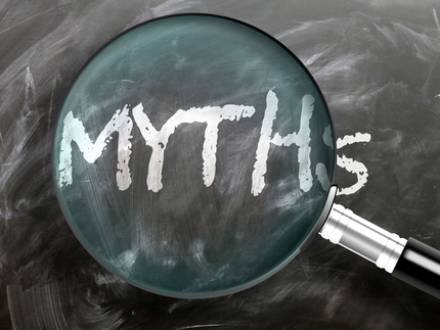Recent Blog Posts
Top Legal Myths About Sexual Assault Cases in Texas
 Sexual Assault is a severe offense under Texas law. However, misconceptions about how these cases are handled often create confusion and even injustice. At Barbieri Law Firm, we believe in clarity, accurate information, and strong legal advocacy. If you or someone you know is facing allegations, working with an experienced sexual assault lawyer in Texas can make all the difference.
Sexual Assault is a severe offense under Texas law. However, misconceptions about how these cases are handled often create confusion and even injustice. At Barbieri Law Firm, we believe in clarity, accurate information, and strong legal advocacy. If you or someone you know is facing allegations, working with an experienced sexual assault lawyer in Texas can make all the difference.
Myth 1: "Sexual assault only involves rape."
Under Texas Penal Code §22.011, Sexual Assault encompasses a range of non-consensual sexual acts. It’s important to understand that Sexual Assault is not limited to what is commonly referred to as "rape."
An experienced sexual assault lawyer in Texas can explain how these legal definitions apply to individual cases and ensure that rights are fully protected.
The Role of Evidence in Sex Crimes Defense
 When your reputation and freedom are on the line, evidence becomes the deciding factor in whether charges are dismissed or a conviction is handed down. That's why choosing an experienced sex crimes defense lawyer in Texas is essential. At Barbieri Law Firm, we know the State's tactics inside and out, and we use every tool at our disposal to challenge the evidence stacked against our clients.
When your reputation and freedom are on the line, evidence becomes the deciding factor in whether charges are dismissed or a conviction is handed down. That's why choosing an experienced sex crimes defense lawyer in Texas is essential. At Barbieri Law Firm, we know the State's tactics inside and out, and we use every tool at our disposal to challenge the evidence stacked against our clients.
Why Evidence is Central in Sex Crimes Cases
Unlike other types of criminal charges, sex crime cases often hinge on one person's word against another's. Evidence, whether forensic, digital, or testimonial, can significantly influence how judges and juries view the truth. Typical forms of evidence include:
-
Witness testimony from alleged victims or law enforcement
-
Forensic evidence, such as DNA or toxicology reports
How Criminal Charges Impact Mental Health and How We Support Clients
 When you’re accused of a crime, the fight isn’t only in the courtroom, it’s in your mind. At Barbieri Law Firm, we understand that criminal charges create overwhelming stress, fear, and uncertainty. That’s why our mental health criminal defense approach goes beyond strategy. We fight fiercely for your future while standing by your side through the emotional toll of the process.
When you’re accused of a crime, the fight isn’t only in the courtroom, it’s in your mind. At Barbieri Law Firm, we understand that criminal charges create overwhelming stress, fear, and uncertainty. That’s why our mental health criminal defense approach goes beyond strategy. We fight fiercely for your future while standing by your side through the emotional toll of the process.
The Mental Health Strain of Criminal Charges
The weight of criminal accusations can be devastating. Clients often describe:
● Constant anxiety over what the future holds
● Isolation due to stigma from family, colleagues, and the community
● Depression as reputations and relationships hang in the balance
● Physical symptoms like insomnia, fatigue, or headaches caused by stress
How to Protect Your Reputation During a Criminal Case
 When facing criminal charges, your freedom isn’t the only thing at stake; your reputation is too. In today’s digital world, headlines spread fast, and social media never forgets. Knowing how to protect your reputation during a criminal case can make the difference between moving forward and being defined by accusation.
When facing criminal charges, your freedom isn’t the only thing at stake; your reputation is too. In today’s digital world, headlines spread fast, and social media never forgets. Knowing how to protect your reputation during a criminal case can make the difference between moving forward and being defined by accusation.
At Barbieri Law Firm, we understand the weight of both the courtroom and the court of public opinion. Here’s how you can stay ahead and protect your reputation during a criminal case from day one.
Protect Your Reputation During a Criminal Case by Controlling the Narrative
Silence is often your best weapon. Avoid speaking to the press or posting on social media about your case. Even one careless comment can be twisted and used against you. Please direct all inquiries to your attorney; they are best equipped to manage public statements while protecting your rights.
How Former Prosecutors Build Stronger Defense Cases
When your future is on the line, experience matters. There’s one type of experience that gives a criminal defense attorney a true unique advantage: time spent as a prosecutor.
At Barbieri Law Firm, our team includes former prosecutors who know the system inside and out. That insider perspective allows us to anticipate the other side’s moves and build a defense strategy designed to win.
In this blog, we’ll explain why having a former prosecutor on your defense team can make a critical difference and how their background shapes the outcome of your case.
Why a Prosecutor’s Perspective Matters
Prosecutors have one job, to convict. To do that, they develop strategies, assess weaknesses in cases, and learn how to present evidence convincingly to a judge or jury. When a lawyer has been on that side of the courtroom, they know:
- What evidence the prosecution needs to secure a conviction
- Where cases often fall apart and why
- Which arguments persuade juries and which don’t
Defending Against False Allegations in Sexual Assault Cases for College Students
False allegations of sexual assault can turn a student’s world upside down in an instant. In the current climate, where universities and public opinion often take a "believe the victim" stance, a single accusation can jeopardize your education, future career, and reputation even before the truth comes out.
At Barbieri Law Firm, we’ve seen how devastating these cases can be for students and their families. That’s why understanding how to defend against false allegations in sexual assault cases in critical. In this blog, we’ll explain what you need to know, what steps to take immediately, and why experienced legal representation can make all the difference.
Why False Allegations Happen and Why They’re So Dangerous
False accusations are rare, but they do happen. They can stem from misunderstandings, regret, peer pressure, relationship conflicts, or even malicious intent. For college students, the stakes are even higher because:
- Campus disciplinary systems move fast before the criminal justice process even begins
Understanding Expert Witness Testimony in Criminal Defense
When someone is accused of a crime in Texas, the stakes could not be higher. Their freedom, future, and reputation are on the line. In these cases, the defense attorney’s job is not only to challenge the prosecution’s case but also to bring clarity to evidence that is often complex, technical, or scientific. That’s where expert witnesses play a critical role.
In criminal defense, an expert witness can be the difference between conviction and acquittal. Their testimony may help a jury see reasonable doubt, reveal flaws in the state’s evidence, or provide insight that changes the course of a case. But what exactly does an expert witness do, and why are they so important in Texas criminal defense cases?
This article explains the role of expert witnesses, when and how they are used, and why their involvement can make or break a case.
What Is an Expert Witness?
In the simplest terms, an expert witness is someone with specialized knowledge, training, or experience in a field that relates to the evidence in a criminal case. Unlike regular witnesses, experts don’t just testify to what they personally observed. Instead, they interpret complex information and provide opinions that help the jury understand technical evidence.
Juvenile vs. Adult Charges in Texas: What Every Family Needs to Know
When a young person is accused of a crime in Texas, families face an overwhelming reality: what happens next depends not just on the facts of the case, but on whether the charges are handled in juvenile court or adult court.
This distinction can mean the difference between a future preserved and a life permanently altered. At Barbieri Law Firm, we've seen firsthand how critical it is to understand this line - and to act quickly when it's crossed.
In this article, we'll break down the differences between juvenile and adult charges in Texas, when a child can be certified as an adult, and what parents need to do to protect their child's rights and future.
The Age Divide in Texas Criminal Law
Texas law draws a firm line at age 17.
- Juvenile Court: ages 10–16
- Adult Court: age 17 and older
This means that a 17-year-old high school student will not be treated as a juvenile, even if they're still living at home and dependent on their parents. At that age, the law considers them an adult for criminal purposes - facing the same penalties, public record exposure, and collateral consequences as any adult defendant.
Navigating Appeals for Athletes Facing Criminal Charges: What You Need to Know
When a professional athlete faces criminal charges, the stakes extend far beyond the courtroom. Their reputation, career, endorsements, and future opportunities can all be on the line. If a conviction occurs, appealing the decision may be the athlete's best chance to protect their legacy and livelihood. But the appeal process is complex - especially for athletes under intense public and media scrutiny.
At Barbieri Law Firm, we specialize in defending athletes through every stage of the legal system, including appeals. Here's what athletes need to know about navigating the appellate process in Texas.
Understanding the Appeal: It's Not a Retrial
An appeal isn't a do-over of the trial or a chance to present new evidence. Instead, appellate courts review whether legal errors occurred during the original trial that were serious enough to affect the outcome. These could include improper jury instructions, incorrect admission of evidence, or constitutional violations.
Can a Case Be Reopened After Dismissal? What Texas Law Says
Getting your criminal case dismissed feels like a victory - but many people worry: Can the case be reopened? The answer isn't always simple. In Texas, whether a dismissed case can come back depends on the type of dismissal and the circumstances.
At Barbieri Law Firm, we help clients understand their rights after a dismissal and protect them from unexpected legal surprises. Here's what Texas law says about reopening cases.
Types of Dismissals and What They Mean
- Dismissal With Prejudice: This is a final decision. The case is closed permanently, and the prosecution cannot bring it back.
- Dismissal Without Prejudice: This means the case is dismissed for now, but the prosecutor can refile charges if new evidence emerges or they decide to proceed.
When Can a Dismissed Case Be Reopened?
Cases dismissed without prejudice can be reopened, sometimes even months or years later, especially if:








